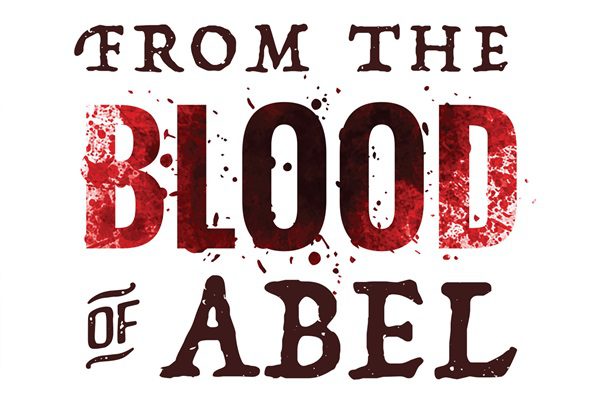 As a father with young children, I often have to go to obligatory birthday parties. Every parent knows what I’m talking about – my son brought home an invitation to the event and pleaded with me to take him. So, my son and his introverted father went to the party, which happened to be at a bowling alley. He bowled while I made my way to the bar to sit with the other dads.
As a father with young children, I often have to go to obligatory birthday parties. Every parent knows what I’m talking about – my son brought home an invitation to the event and pleaded with me to take him. So, my son and his introverted father went to the party, which happened to be at a bowling alley. He bowled while I made my way to the bar to sit with the other dads.
I made small talk with them. As an introvert, I’ve learned to ask a lot of questions, which keeps the attention off of me and onto others. But I soon ran out of questions. Thus ensued the dreaded Awkward Silence. A sense existential angst poured into my body as I knew what was about to happen.
“So,” my conversation partner began, “what do you do for a living?”
And here is where I came to my dilemma. Do I tell the truth, which is usually adds to the Awkward Silence, or do I make up something really exciting – the FBI, CIA, or Video Game Tester?
“I’m a pastor,” I replied, “and a blogger for the Raven Foundation and Teaching Nonviolent Atonement websites.”
Yep. Our friend Awkward Silence came for a visit. Few know how to respond to “Hi. My name is Adam. I’m a pastor and a blogger.” But words soon began to fill the silence. Another dad sitting next to us heard the word Atonement and wanted to talk.. I was completely surprised when he said with a great deal of passion, “I don’t think Jesus should have done it. He shouldn’t have gone to the cross. He should have resisted. Think of all the great things he could have done if he’d just stayed alive!”
There was an edge to his voice that made me very uncomfortable. So, I asked the bartender for another drink and looked this dad square in the face and said, “Yeah, so, what do you do?”
Introverts know the art of the pivot.
Still, I wish I’d had a better response. In fact, I wish I’d had a copy of Matthew Distefano’s latest book From the Blood of Abel: Humanity’s Causes of Violence and the Bible’s Theological-Anthropological Solution.
Of course, people have been asking this question for 2,000 years. Matthew asks it like this, “Why does Jesus do this? Why does he lay down his life? Surely, he would have had a better chance of bringing about change had he stood up and fought for himself. All of this forgiveness and mercy talk is good for what, now that he is dead?”
Indeed, that’s exactly what this dad was saying. But he was missing the point, and Matthew explains the importance of Jesus’ death and resurrection so beautifully in this book. The build up to Jesus’ death is referred to as the Passion narratives. Matthew explains the Passion and Resurrection like this, “…the Passion and the Resurrection is all about the pouring out of one’s self for the other, in the spirit of love, mercy, compassion, and forgiveness.”
Paul, one of the earliest Christians, claimed that many found the cross to be a stumbling block or just foolish. Many believed it was foolish because Jesus was a failure. He was killed, after all. It’s a stumbling block for many modern people because of a later theological development that claimed Jesus atoned for human sin by channeling the wrath of God upon himself, thus saving Christians from God’s wrath – a wrath that sinners will surely receive.
But Matthew provides an important corrective to both of these mistaken beliefs. Jesus’ mission was to reveal who God is. Jesus went to the cross to show the extent of God’s love. The cross shows that there is no wrath in God. Rather, It reveals that wrath belongs to humans alone. Wrathful humans killed Jesus, not God. This is the biggest problem with our species, for we’ve been wrathfully killing one another since the beginning of human culture.
But how does God respond to the murder of the Son? If we take the Incarnation seriously, then God loves humanity so much that God forgives us even when we kill God. Humans enacted deicide; we killed God in Christ. If God were ever to be wrathful, it would be at this moment. But Jesus changes everything we thought we knew about God by responding with words of forgiveness, “Father, forgive them, for they know not what they do.”
Matthew explains it like this, “…the death of Jesus represents all of humanity’s judgment against God.” Matthew then explains the resurrection in a refreshing way that is consistent with Jesus’ words on the cross. In the Resurrection, Jesus appeared to his followers, those who had abandoned him to the cross a mere three day before, and said, “Peace be with you.” In contrast to humanity’s judgment against God on the cross, Matthew writes that, “the peace and forgiveness the Resurrection brought was God’s judgement for humanity.” Jesus went to the cross to reveal that God’s judgment for humanity is forgiveness and peace!
From the Blood of Abel is an exciting and hopeful book. It’s easy to understand and invites us to follow the God of nonviolent love. In doing so, we will participate with God in the healing of ourselves and the world. Indeed, I wish I could have given this book to that other dad at the bowling alley. It’s definitely a strike!











